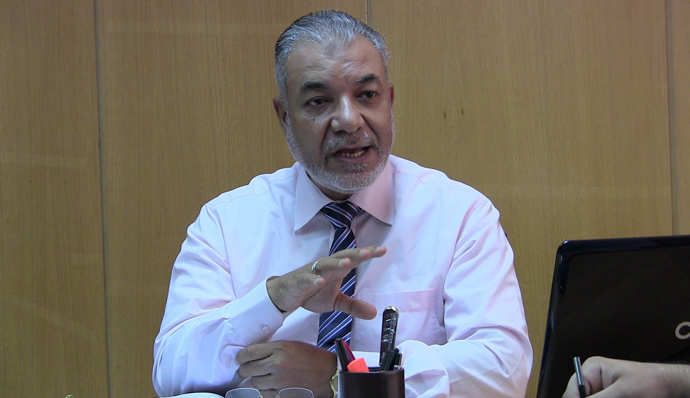The world economic crisis has proven the success of ”sukuk”
$150bn is the value of Islamic financing in Egypt
By Mahmoud Hammad
Muhammad Al-Beltagy, Chairman of the Egyptian Islamic Finance Association (EIFA), said that Islamic banking and finance in Egypt is estimated at $150bn, with a 12 per cent annual growth rate yet needs more development and a law that regulates it.
In a statement to MEO, he pointed out that in case “Sukuk” or Islamic bonds were applied in Egypt, the size of Islamic finance will increase. The number of Islamic bank branches in Egypt reached 212, namely 8 per cent of the 2600 Egyptian bank branches. On top of them comes Abu Dhabi Islamic Bank (ADIB) – with 70 branches.
Al-Beltagy confirmed that all international institutions agree that Islamic finance is essential for reviving economies, seeing it addresses “real” economy. To see it grow in Egypt, there should be a law authorizing it and encouraging banks to carry on that activity, there is also a need for a politically independent supervisory committee for Islamic finance. EIFA’s chairman said that Islamic financing is growing across the globe, especially in Europe. Having reached a size of $2tn in 2015, with a 16 per cent annual growth rate since 2009, according to the World Bank, which proves that it has been gaining momentum since the global economic crisis.
He pointed out that the 2008 crisis has proven that Islamic finance is a very successful financial tool, contrary to traditional ones, on top of which are bonds which have mainly sparked the crisis. Nearly 1000 banks went bankrupt due to this crisis, including only one Islamic bank in Mauritania where international reports called on Mauritanian Islamic banks to negotiate with the central bank to issue a law that enables them to operate without having to deal with it based on usury, which negatively affects their credibility and competitiveness. According to Al-Beltagy, Europe is where Islamic finance and banking is the most active and is growing, such that Luxembourg has become a hub for Islamic investment funds.
Last September, German Finance Minister Wolfgang Schäuble in a meeting of G20 finance ministers and central banker governors said «Islamic finance is growing in importance for the global economy. It is, therefore, important that international financial institutions consider questions related to integrating Islamic finance into global finance.»
Islamic financing has been rapidly growing in Europe since its inception in the 80s, according to a report by “Baitak” Capital Investment House, a subsidiary of Kuwait Finance House. Following the economic crisis, Islamic finance has gained momentum; given its sustainable growth impact, it has proven useful both inside and outside of Europe. According to the same report, Islamic fund managed assets in Europe are estimated at nearly $14.6bn- representing 19.8 per cent of the world›s total Islamic fund managed assets.


